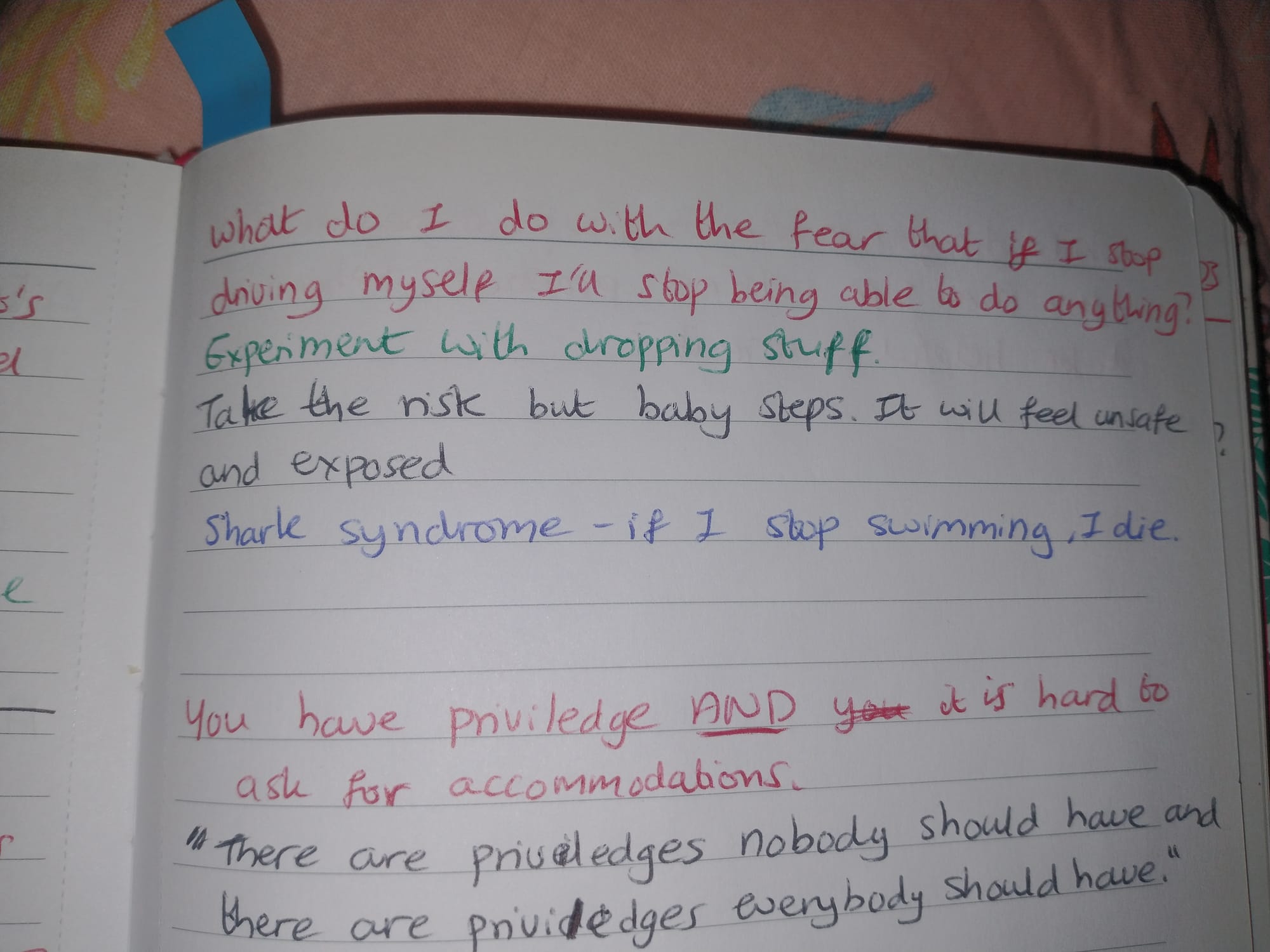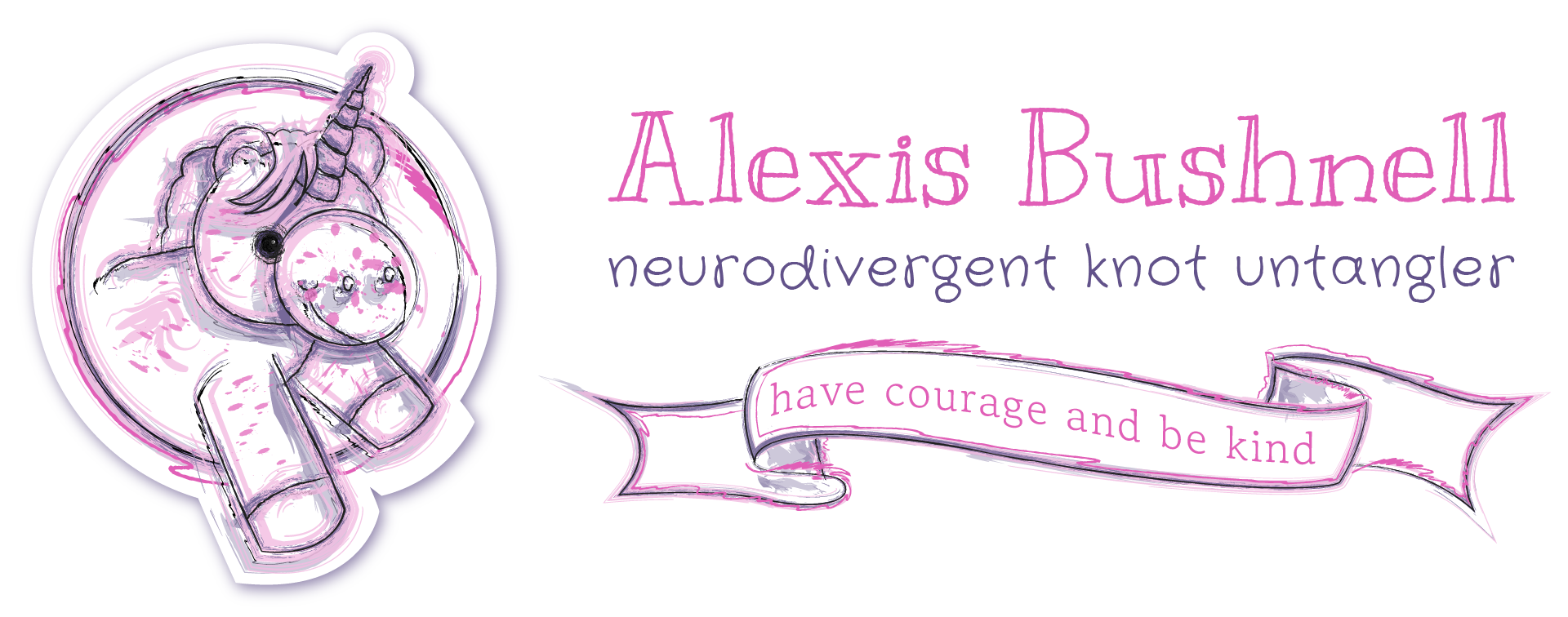On becoming chronically ill.

For a few years now I have been processing grief and, more specifically, my aversion to processing it. Nobody loves grieving but, since losing my Gran at 11 and then my Dad at 14, I have become very adept at avoiding it for a variety of reasons.
Grief came up again in my life a few years ago as I began processing a lot of childhood trauma, it continued to make itself known as I went through Autistic burnout at the start of 2024, and now it is knocking on my door again/still as I learn to live with a chronic illness (long covid). The grief of past and potential lives lost, the body and skills I had, and my identity feels like if I let it in it would crush me.
I know, of course, that it won't. I've done enough courses on trauma to understand how to let it in and that it is so close to the surface entirely because I am safe enough to feel it, but the fear remains very real. The intensity of grief upon grief upon grief feels like I've been trying to keep a galleon afloat by chucking teacups of water out as the hole in the side gets ever larger.
"Even now, more than thirty years since many of my physical abilities started to be stripped from me, I grieve for them. It's not like the death of a loved one, where time may make it easier, although the grief can still ambush you. It's ongoing new grief, as you realise there's something you can't do today that you could do yesterday." - @UnderstatedExtrovert.
The grief around becoming chronically ill also hits a very sore point for me - guilt around how I have treated my body. Over the past 10 years I have written many apologies to my body for abandoning it, for not listening to it, for pushing it too hard, for demanding it keep going when it had nothing left, for hating it, for failing over and over again to learn the lessons it keeps trying to teach me.
Now I am wrestling with the feeling that I deserve this. My body has learned that the only way to get me to listen is to collapse, be that fainting, fitting, and now fatigue. I know that's not how it works, but the guilt is so heavy because I have had so many opportunities to face down "shark syndrome" and chosen not to, avoided it, because it feels good to be doing things, it feels like me. It feels safe.

Chronic illness has come with a large helping of old trauma that I can no longer avoid staring down. Alongside the physical pain, fatigue, extra sensory sensitivity, brain fog, and other shitty every day symptoms has come the shadows that I've spent my life trying to outrun.
"You don't just grieve once, you'll grieve again and again. It will take different flavours and appearances but it's all grief." - PokeTheBruises.
I am still learning to grieve and, as is the only way I seem to learn, I am doing it from deep in the trenches on the front line, but I am not doing it alone. I am so lucky to have run in disabled, neurodivergent, chronically ill, crip and mad circles my entire life. I have had the honour of a front row seat to the wisdom of many incredible spoonie humans. I have the tools and the knowledge but, as many of us know, knuckling down to using them is the real challenge so, with the help of a new journal system I'm trialing, I'm returning to my tried and tested system of baby steps, and my first quest is energy management. Now I just need to remember that processing and grieving is a part of that...

